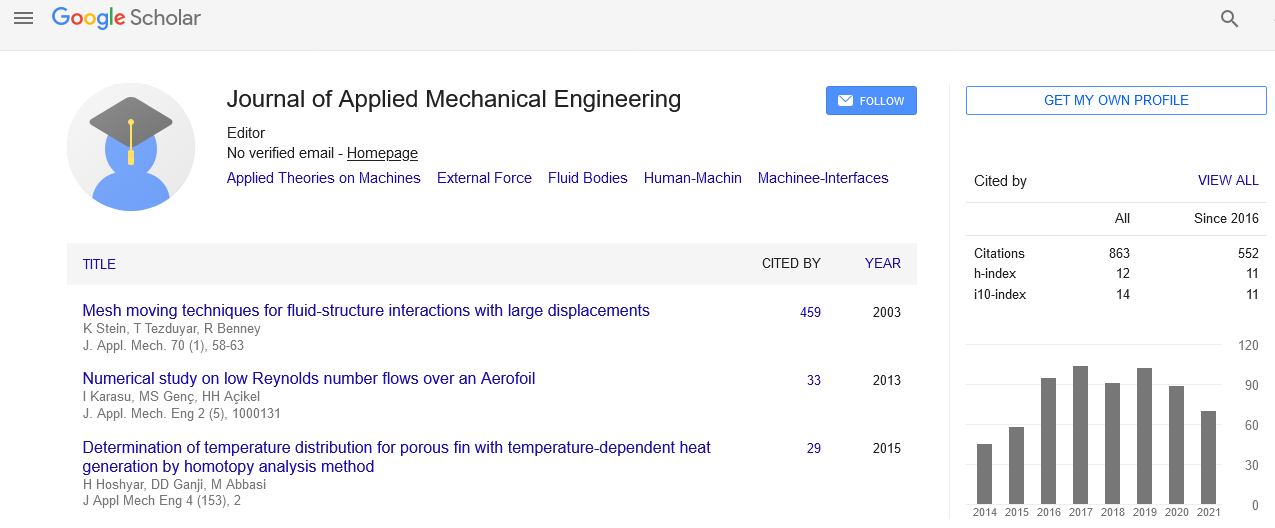Indexed In
- Genamics JournalSeek
- JournalTOCs
- CiteFactor
- RefSeek
- Hamdard University
- EBSCO A-Z
- OCLC- WorldCat
- Publons
- Google Scholar
Useful Links
Share This Page
Journal Flyer

Open Access Journals
- Agri and Aquaculture
- Biochemistry
- Bioinformatics & Systems Biology
- Business & Management
- Chemistry
- Clinical Sciences
- Engineering
- Food & Nutrition
- General Science
- Genetics & Molecular Biology
- Immunology & Microbiology
- Medical Sciences
- Neuroscience & Psychology
- Nursing & Health Care
- Pharmaceutical Sciences
Kinetic impact simulation of asteroid apophis 99942
International Conference and Exhibition on Mechanical & Aerospace Engineering
September 30-October 02, 2013 Hilton San Antonio Airport, TX, USA
Khaled I. Alfozan
Scientific Tracks Abstracts: J Appl Mech Eng
Abstract:
Among various hazardous Near Earth Asteroid mitigation technologies, the kinetic impact deflection strategy has the simplest concept - linear momentum is modified by driving a mass onto it. The European Space Agency?s Don Quijote mission is considering to target either Amor asteroid 2003 SM84 or 99942 Apophis. Thus, the study of the kinetic impact collision avoidance strategy has a practical importance. A ?rubble pile'' asteroid is defined as a weak aggregate of large and small components held together by gravity rather than material strength. Asteroid 25143 Itokawa is the first unambiguously identified rubble pile, as observed by Hayabusa. Asteroid Apophis has an LL-chondritic composition. Most probably, it also has a rubble pile structure. To compute the dynamical motion of such complex bodies, another author in this session developed an efficient rubble pile dynamics simulation, which has the following features: (1) for the intervals of continuous motion, the integration routine can employ relatively large time steps, and (2) when contacts occur, the system degrees of freedom are reduced. These features speed integration by several orders of magnitude and allow for simulation of much larger systems. We use this formulation to simulate Asteroid Apophis 99942 as a rubble pile, hit, in 2029 by an impact or carrying sufficient momentum to alter the asteroid?s position by 3 Earth radii 7 years later. We study the accuracy with which the desired velocity change is achieved as a function of the initial impact point. We find that the velocity change of the asteroid is highly sensitive to the impact location. The results suggest that internal structure of the asteroid has to be known to a high degree of precision for the mission success
Biography :
Khaled I. Alfozan earned his degrees in the technical specialty of Mechanical Engineering. Since 2004, he has served as a Senior Research Engineer and Research Professor in the Space Research Institute within King Abdulaziz City for Science and Technology (KACST). His research interests include celestial mechanics, patched three-body problem methods in trajectory design, the dynamics of solar system small bodies, and the characterization of Near Earth Asteroids by means of stellar occultation.

